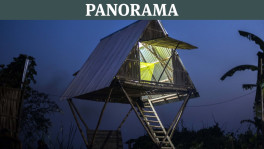Free flow of information, freedom of expression threatened in the name of Digital Security: TIB
Turning high-handedness into the new normal must be prevented, the anti-corruption watchdog says

The Transparency International Bangladesh (TIB) has expressed deep concern over the recent attacks, lawsuits, threats and intimidations against people of different professions across the country.
Namely, writers and journalists have recently been targeted for reporting corruption and irregularity through news, cartoons or photographs or social media, it said.
TIB demanded immediate and unconditional release of the detainees and urged the government to ensure people's constitutional right to freedom of expression.
In a press release issued yesterday, TIB Executive Director Dr Iftekharuzzaman said, media reports show that recently many people – especially journalists, teachers, writers, cartoonists, social workers, and even health workers – were harassed and attacked.
Also, cases were filed against them and many were fired from job as they criticised some recent irregularities in the healthcare system, relief distribution, and other activities amid the outbreak.
They were convicted in cases of "spreading rumour," "providing wrong information," "criticising the government," "defamation," and "murder threats." Some were even sent behind bars in these cases.
Dr Iftekharuzzaman said: "I urge the authorities to respond to criticism with their work and control corruption and irregularities based on disclosed information instead of controlling information and walking on an undemocratic and arbitrary path."
Referring to the recent incident of missing journalist Shafiqul Islam Kajal, Dr Iftekharuzzaman said, "Such response to disclosing or criticising corruption and irregularities go against Prime Minister Sheikh Hasina's announcement of 'zero tolerance' against corruption."
"Also, it is against the constitutional right to free expression."
It is the task of the state to take action against the accused by verifying the information disclosed –regarding corruption or irregularities – while ensuring the informant's safety.
"But it is the informant who is being punished. So is it not usual to ask if the state is discouraging corruption or indulging in corruption?" Dr Iftekharuzzaman argued.
The greater the gap between the information published in a controlled way and the actual information, the greater the panic, crisis, and the risk of mismanagement.
Citing media reports, TIB said that 180 journalists were sued from the beginning of 2018 to June 2020 under the Digital Security Act and Section 57.
Criticising the 50 plus cases and detentions against different individuals under the Digital Security Act this year, Dr Iftekharuzzaman said: "The state should have created an environment in which the media could publish information freely, impartially, and objectively."
After the Covid-19 outbreak, 67 cases including 37 against journalists were filed under the Digital Security Act, TIB said.
Also, 88 people including cartoonist and journalists were arrested for allegedly spreading misinformation and rumours about Covid-19 on social media.
TIB considers such detention and repression to be a pathway to institutionalising arbitrariness which violates the commitment to establish the rule of law in a democratic country.


 Keep updated, follow The Business Standard's Google news channel
Keep updated, follow The Business Standard's Google news channel
















